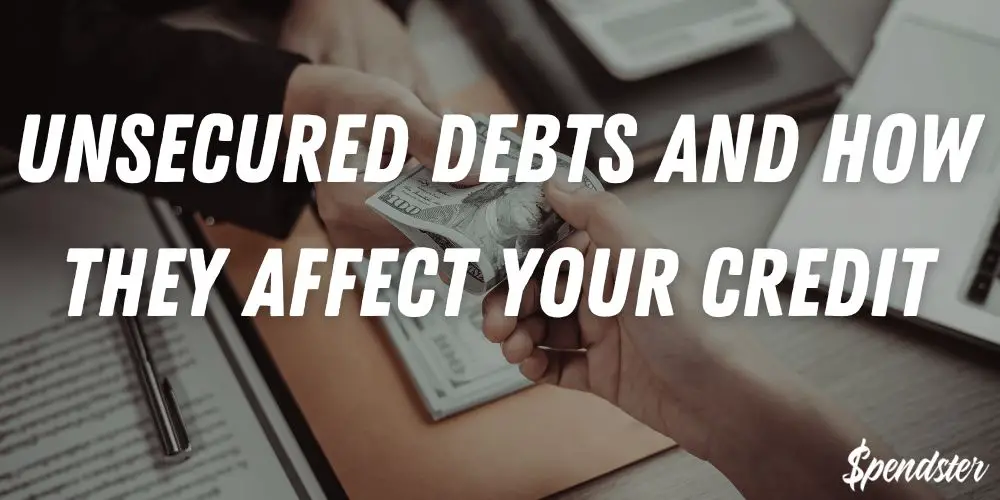Settlement Of A Debt – What Is It And How Does It Work?
If you find yourself in financial trouble, it can be tough to get out of debt. Even if you have a debt management plan, you might not be able to manage timely repayments. It all reflects on your credit report and credit score, so debt settlement could be your only option.
Debt settlement isn’t the same as repaying the debt or using a consolidation loan. It requires re-negotiating the terms with your creditors by yourself or with the help of a debt settlement company. Keep reading to find out when and why this could be a good option for you.
Key Takeaways
- Debt settlement requires negotiations with a creditor for debt reduction in exchange for a substantial debt payment
- Debt settlement results in lower credit scores and delinquent payment listings on your credit report
- You can negotiate the terms with help of debt settlement agencies or a debt collection attorney
- Companies may charge fees up to 20% of the debt amount
- You can only use debt relief for paying unsecured debt
- The Federal Trade Commission’s Telemarketing Sales Rule regulates the operation of debt relief companies
What’s Debt Settlement And How Does It Work?
Debt settlement, or “debt relief” includes paying a substantial sum of money to the creditor in exchange for a portion of your debt being written off. Depending on the situation and the willingness of the lender to negotiate, you can lower your debt by 10% to even 50% less than you owe.

You can also hire a debt settlement agency and debt settlement lawyers, but it can sometimes reduce efficiency.
It’s because you still have to pay for those services, and the fees are not exactly low. On average, you’ll pay up to 20% of the initial debt to a debt settlement agency.
Of course, it’s possible to get the job done even without debt settlement companies, as we’ll discuss shortly.
Still, if you decide to go with a debt relief company, you’ll first have to stop making your debt repayments. If you are in a bad financial situation, you are probably already behind on the payments, and it’s a good thing in this case.
Creditors aren’t likely to grant you debt negotiations if you are staying current on your payments. There’s no reason, right? You are still paying what you owe through monthly installments.
However, if you fail to stay current on the payments, the creditor will have some interest in getting a lump-sum payment from you. The good side is that even after paying your debt settlement company, you’ll still ultimately be paying less towards your debt.
The bad news is – debt settlement can negatively affect your credit score and lower your chances of getting a new credit card approved or applying for a mortgage loan.
Let’s Talk About Debt Settlement Companies
Debt negotiation can be done by debt settlement companies that will work for a fee if they succeed in lowering your debt.
If you are unfamiliar with the debt negotiation process, and you are simply looking for someone professional to help you, they might seem like a good option. Companies will first advise you to stop making your debt repayments to the creditor.
Instead, they will open a savings account in your name into which you’ll be making deposits. Over time, as the amount accumulates, the debt settlement agency will negotiate with the creditor on your behalf and offer a lump-sum payment for a lower total debt.
If they accept, you’ll end up paying a lower debt amount over time, and you’ll have to pay the agency from that savings account as well.
However, it isn’t so simple and the process can be pretty long and tiring. First of all, you’ll end up having delinquent payments on your credit report. It will lower your credit score drastically, and if that wasn’t enough, your account will probably be sold to collections.
That’s why you may end up receiving numerous calls from debt collectors trying to claim your debt. While it’s all bad for your score, having the debt transferred to collections isn’t necessarily the worst thing.
Your debt settlement company should be able to negotiate the terms easier than with the original creditor. Debt collectors also earn a cut in this case, and the initial creditor still gets a lump-sum payment.
So, seemingly everyone is happy with this sort of debt arrangement, only you’ll end up having long-term consequences on your report.
Debt Settlement Attorneys VS Debt Settlement Companies
As mentioned, you can also do the negotiations yourself without any help from settlement companies. In this case, you can also hire a debt settlement lawyer to help you out.

Getting valued advice from a debt settlement attorney can be priceless since it’s probably much more effective than with a debt settlement company.
The first major difference is the price you’ll pay for the services. While debt settlement agencies often take up to 20% of each settled debt, a debt settlement lawyer might work for a flat fee.
They can still aid in the entire negotiation process, and provide valuable advice from a legal point of view. There’s one unspoken truth about debt settlements as well – the creditors might choose to go after you and sue you.
In this worst-case scenario, it’s good to hire an attorney to defend you, and the same attorney can do all this for you. So, you must find a reputable debt settlement lawyer which can turn out to be much more beneficial than with a company.
Let’s face it – debt settlement companies work for profit, and they aren’t there to help you out as their number one priority. On the other hand, the attorney-client relationship is much more valuable in this trade, and you’ll get some genuine legal advice.
Perhaps the attorney will tell you it’s better to pursue another option, like debt consolidation or even bankruptcy in some cases. They will know the best option for your situation after reviewing your debt situation.
How To Avoid Bad Debt Settlement Companies?
The debt settlement market draws some shady companies and agencies that want to scam you and make off with your money. That’s why you must choose a reliable and reputable debt settlement company.
Here are some of the main signs that you are dealing with a scam company:
- The company guarantees to settle your debt for you
- Upfront fees are requested
- The company asks you to make payments into its account, instead of opening one in your name
Companies can even sometimes pretend to be debt settlement attorneys, but they won’t offer legal support in case you get sued. This is a clear sign that you are dealing with a scam company instead.
So, make sure to go over your options and ask for an upfront and detailed explanation of the services and how the process would proceed.
You are putting your credit score and payment history at risk, so the choice of the right debt settlement attorney or company is crucial.
You can find trustworthy attorneys and companies on the website of the Federal Trade Commission. Also, some important rules regulate the operation of these companies under the FTC’s Telemarketing Sales Rule.
Types Of Debts You Can Settle
Besides all the good and the bad sides of debt settlement, it can only be used for specific debt relief types. You can only use it to close unsecured debt this way, which means it won’t work for mortgages, car loans, or even student loans.
Most consumers use debt settlement to clear their credit card debt, installment loans, or any other loan that doesn’t include collateral. Medical bills are also in this category, so you’ll likely get to negotiate settlement terms with this type of debt.
Some credit card companies won’t even engage in negotiations with you and will try to charge the full debt amount.
On the other hand, other creditors may be willing to engage in the process of debt relief. The worst thing is – you can’t know if they will agree until you or your attorney inquire about the possibility.
This is a problem, since for creditors to even consider you for debt settlement, you’ll have to stop making monthly payments. So, it’s possible to get a negative answer to the inquiry, and your credit score will still suffer due to delinquent payments.
It’s probably the main risk of debt settlement, which is why debt collectors are more likely to agree than initial creditors.
Regardless of the exact type of loan, you might be forced to pay taxes for the forgiven amount of debt, since that portion of the debt is also taxable.
The Impact Of FTC’s Telemarketing Sales Rule
The legal information about debt settlement consists of consumer protection laws and the regulations from the Telemarketing Sales Rule. It protects the consumers from shady companies or even companies that might present themselves as debt settlement lawyers.

The regulation prohibits debt settlement companies from charging any fees to clients before settling a part of their debt. Also, it deals with false advertising, so no company can guarantee or offer “certain” ways of settling your debt.
You never know if the creditor will agree to this sort of arrangement, so any guarantees in this field serve as a warning sign.
It also requires that there’s a written settlement between the consumer and the company, along with the debt management plan.
Although the Telemarketing Sales Rule protects you as a consumer, it’s still difficult to escape shady companies sometimes. That’s why it’s better to hire a law firm with a great reputation and experience in the field.
Debt Settlement Alternatives
If you find yourself in financial troubles that require a debt management plan, there are some alternatives to debt settlement. Taking a debt consolidation loan can be one alternative, and it can prevent debt collection.
Still, debt consolidation can also hurt your score at first, and it takes some time to find a loan with suitable interest rates.
Another alternative is Chapter 7 bankruptcy, it leaves a long-lasting mark on your credit report. Also, your property or a car might be used to pay for the expenses and bankruptcy attorneys.
Either way, you can get legal services and advice from your debt settlement attorney to find out the best option for you and your debt situation.
Final Thoughts
Eventually, debt settlement could turn into a long-lasting process and there’s no guarantee it will work with your creditor. You should avoid using the services of debt settlement companies and look for a good attorney.
Attorney fees are much lower and you might even be able to get a free consultation. There are legal risks involved as well, so having the help of an attorney can help you avoid a debt collection lawsuit and build a debt settlement plan.
Frequently Asked Questions (FAQ):
What happens after a debt settlement?
Debt settlement can leave you with a portion of your debt being written off by the creditor, but it will negatively impact your credit score. So, you might have to work on credit repairs to boost your score once again afterward. If you are using the services of settlement companies, you’ll have to pay their fees as well.
Can I hire someone to negotiate my debt?
Yes, you can hire a debt settlement company to negotiate your debt, but it’s better to use the services of debt settlement lawyers. They will also be able to help you avoid debt collector lawsuits and will provide insight into the legal background of the procedure. It’s also possible to negotiate the terms yourself without the help of attorneys and companies.
How long does it take to negotiate a debt settlement?
It could take up to 36 months to negotiate a debt settlement since you’ll need to make payments to a savings account which will then be used to offer debt settlement payments to the creditors. Because of this, there’s always a risk of creditors taking legal action due to your delinquent payments.
What percentage will the debt collector settle for?
The safest option for debt settlement is to offer up to a 30% reduction to a debt collector. Sometimes, they will be willing to accept an even higher percentage, but asking for a 50% reduction at first can turn them off.


